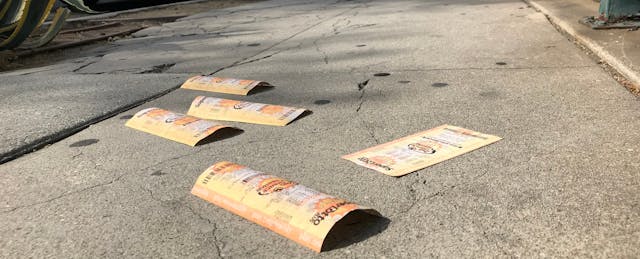In the lottery of economic timing, my brother drew a bum ticket.
On the day of his college career fair—September 15, 2008—Lehman Brothers collapsed. The unfolding was so hasty that no one thought to disassemble the firm’s recruiting table, which stood vacant as my brother and his classmates grimly filed by.
Today, the site of that fair—Yale’s Payne Whitney Gymnasium—is decked not with recruiting tables, but with hospital beds. By fate or fluke, Yale’s gym is once again a sign of the times.
While our present focus is on public health, I can’t help but think of the four million American college students who will soon graduate into the worst job market in generations. And while I empathize with Yale students, I worry even more about the low-income working students we serve at Concourse Education, a nonprofit college program I co-lead.
Graduating into a downturn is a harsh start that lingers for a lifetime. During the Great Recession after 2008, recent graduate hiring plummeted by over 20 percent. Historically, recession-era graduates that do land jobs earn 10 percent less compared to their boom-time peers, and this gap lasts for at least 10 to 15 years. More troublingly, new research finds that recession-era job market entrants later suffer higher rates of death and disease.
It’s easy to view people like my brother as hapless victims of economic whimsy. But this perspective gives America’s higher education system an undeserved pass. Colleges can better support students in good times and bad. Here’s how.
Let students ‘sprint’ and ‘stroll.’
For many students, economic booms are the worst time to be in college. With jobs plentiful and wages growing, the opportunity cost of school is high. By contrast, when wages are depressed and jobs scarce, staying in school is a better deal. But a traditional bachelor’s degree has only one time horizon: years. A more resilient college experience would enable students to “sprint” toward shorter-term credentials when times are good, and “stroll” toward longer-term degrees when markets cool.
While few brick-and-mortar universities currently offer “sprint” opportunities, this format is increasingly common at higher education’s fringes. Through Coursera’s MasterTrack program, for instance, students can enroll in months-long courses that both culminate in a job-relevant credential and articulate into a master’s degree. Traditional colleges and universities should offer similar structures.
Get students jobs (before graduation).
The archetypal career trajectory begins with a “foot-in-the-door” job or internship. But during recessions—when the labor market is flooded with jobseekers—employers tend to raise experience requirements, eliminating entry-level roles.Schools can hedge against this risk by making work experience a graduation requirement. For instance, “co-op” programs like those at Canada’s University of Waterloo and Boston’s Northeastern University require students to accumulate two years of job experience in their field of study before earning their degree.
Share the risk.
Let me pitch you on a new stock. The minimum investment requires you to liquidate your savings. Once you invest, your money will be locked up for years. And while you’ll likely do well, you might end up in crippling debt.If you’re ready to boot me out the door, I wouldn’t blame you. But of course, I’m talking about college. Today, we ask students and families to pour their savings into a risky, undiversified bet (a college education), with no downside protection.
This isn’t right. If a recession prevents students from reaping the benefits of their education, students shouldn’t shoulder the full costs.Schools can share financial risk in a number of ways. Tuition guarantees promise students money back if they’re unable to land a job. And income-share agreements (ISAs) allow students to forego or forbear payment if their post-graduate income doesn’t exceed a given threshold.
Lend a hand.
Even in good times, countless students live on the edge. In a 2019 survey of 90,000 college students, 40 percent experienced food insecurity, and 10 percent were homeless. We see this all the time at Concourse: One bad day—a broken-down car, a sick parent, a lost job—can derail years of progress.We must do all we can to see students through that bad day. On a basic level, this means establishing or expanding emergency funds that rapidly deliver money to students in crisis. But we also need more counselors and coaches—to build the long-term relationships that enable effective intervention in times of need.
Of course, universities can’t fully counter the headwinds of a next recession. But when Payne Whitney is emptied of hospital beds, when students again walk the career fair floor, they should do so knowing that their economic destiny rests in more than the luck of the draw.


